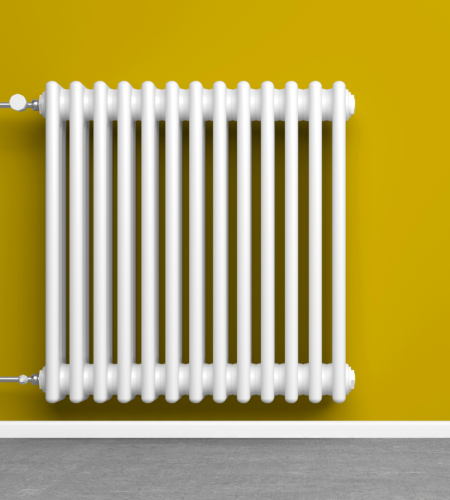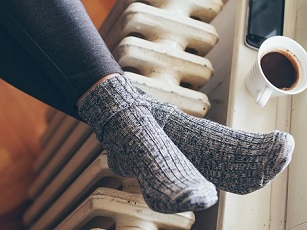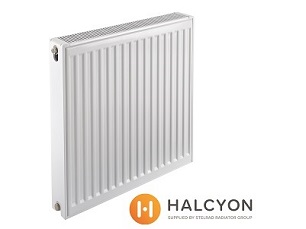As the temperature drops, the colder weather rolls in, and the leaves start to fall, it's the perfect time to start thinking about preparing our homes for winter. One of the most crucial components of any home's heating system is our radiators.
With the colder weather fast approaching, it's essential to ensure that your radiators are winter-ready by checking they are leak-free and that your radiators have been recently bled to ensure they are in working order to help cut energy usage this winter.
We’ve put together a guide containing everything you need to know about how you can prepare your radiators for the winter season.
When Is the Best Time to Check My Radiators for Winter?
It is always good practice to check your radiators before the winter months hit.
Once summer has ended and Autumn approaches, it is the perfect time for homeowners to check their radiators to ensure that your central heating system is operating correctly.
This is because over the warmer months, when you are less likely to use your heating or if you have been away on holiday, there’s a higher chance that the components within your central heating system will fall prone to seizing, sticking and deterioration.
By checking your radiators, you can deal with any possible problems before the winter really sets in because once winter arrives, you will want your central heating system to be fully functional and without issues.
In essence, you can think of it as a trial run, and it's also an excellent way to identify and take preventative measures if any issues pop up, even with your boiler, as you can easily book any repairs for replacements before you need to rely on your heating.

How Do I Prepare My Radiators For Winter?
There are many things you can do to help prepare your radiators for the colder months that will ensure that your radiators are ready to keep you and your family warm and cosy all winter long.
Leak Proof your radiators
Your radiators might be prone to springing a leak, which is considered one of the most significant issues you could face in winter. Not only can it take your radiators out of commission, but a leak that has gone unnoticed can also damage furniture or your flooring, sometimes to the point where you need to fork out to replace them.
Stay vigilant and keep an eye out for signs that could indicate that there is a problem with your heating system, such as hissing, gurgling or knocking sounds. Puddles of water and even a loss or pressure in your boiler could be a sign your radiators might be leaking.
Check Your Thermostatic Valves
When you come to adjust the valves of your radiators in the winter, and you notice that your radiators are not changing to the set temperature or you feel no resistance when turning the valve, it might be a sign that you need to check your thermostatic radiator valves.
Thermostatic radiator valves (TRVs) can be prone to getting stuck in the on or off position, especially if they've been in one place for a long time - e.g. over the summer when your radiators are hardly used.
You can check your TRVs and turn them occasionally, and keeping them moving will help ensure that your valves do not get stuck - even in summer.
It is also important to make sure your thermostatic valves are compatible with your boiler; otherwise - you risk them not working correctly. If in doubt, always seek the advice of a certified professional.
Ensure your water tank and boiler are in good working order.
Apart from your radiators, it is equally just as important to turn your attention to the bigger elements – such as your boiler and water tank.
There are some hot water cylinders that can last up to 30 years, but once they reach around 10 years old, it's good to routinely inspect them so you can catch any issues early.
If you notice that your water is cloudy, discoloured, or smells unpleasant, check your water tank for any rust or sediment that may have built up inside. It is recommended to regularly flush the system to help prevent build-up and help your system save you unnecessary costly repairs.
In the instance your hot water cylinder leaks or does not have enough hot water for your home, It is advised that you should look and inspect the valves, such as the pressure-release valve, to ensure it's working correctly. Additionally, it's wise to also check the thermostat as this may also not be working correctly. If in doubt, call a qualified plumber - they know exactly what to look out for and can help you identify the first signs of valve damage or failure.
Your boiler, on the other hand…
Nobody wants to deal with boiler issues - even less so when the colder months roll in.
When it's finally time to switch on your boiler for the first time in the winter, and you notice your boiler is slow to heat or that you find visible water pooling near it, or if it doesn't even sound right when in use - it might be high time to give your boiler a once over.
It might be that your boiler may have been installed incorrectly, the connections are loose, or even that there is too much pressure in the system. It could also be that the pipework has corroded, but it's important to arrange for a registered gas-safe engineer to come and inspect your boiler every year.
Additionally, you can check the visible pipework to see if you can spot any signs of corrosion – and regularly make a note of your boiler's pressure.

How to Prepare Electric Radiators for the Winter?
Besides central heating radiators, checking your Electric Radiators is just as important when the colder months approach. One of the most common problems with Electric radiators is that, over time, they can be prone to tripping the circuit breaker.
Additionally, electric radiators can develop fault elements, which will have an effect on heating efficiency - so it is important to have your electric radiators checked before the colder months.
How to Prepare Oil-Filled Radiators for the Winter?
With oil-filled radiators, thankfully, you will never have to worry about the oil running out because the oil is not used as fuel; instead, it serves as a heat reservoir; therefore, it never completely gets used up.
Oil radiators could potentially stop working. This is mainly due to a fault controller, but it is recommended to have your oil radiators serviced yearly to identify if any of the components need to be upgraded or replaced.
How to Prepare Towel Rails for the Winter?
With towel rails, if you feel that the rail is cold at the top, then just like central heating radiators, towel radiators will need to be bled.
Additionally, the towel radiator valve can, on occasion, get stuck, especially when your towel rail is not being used, so it is important to turn it once in a while to help solve this problem.
The thermostatic valve can also get stuck down, so by using a screwdriver, you can take off the valve so you can gain access to the pin, which is the part of the valve that can get stuck, which will stop the water flow.
With some pliers, you can easily pull the pin back out, allowing the water flow to resume in your towel radiator.
Get Your Radiators Winter Ready With City Plumbing
Don't let the cold weather catch you off guard…
By following our guidance, you can make sure that your heating system is running efficiently and effectively throughout when the colder months roll in.
Take the time to prepare your radiators with City Plumbing. We stock a vast range of central heating radiators, towel rails, and electric and oil-filled radiators - so you can keep warm and enjoy a cosy home all winter.
If you require further assistance, contact our heating experts or visit your local city plumbing branch.
Author: Alexis Webster
Other articles

The Radiator BTU Calculator
21 Mar 2022 ・ 4 mins

Should You Lower Your Boiler Temperature?
18 Oct 2022 ・ 6 mins

Radiator Buying Guide: which radiator should you choose?
22 Mar 2022 ・ 7 mins

Introducing Halcyon Compact Radiators
21 Mar 2022 ・ 7 mins



